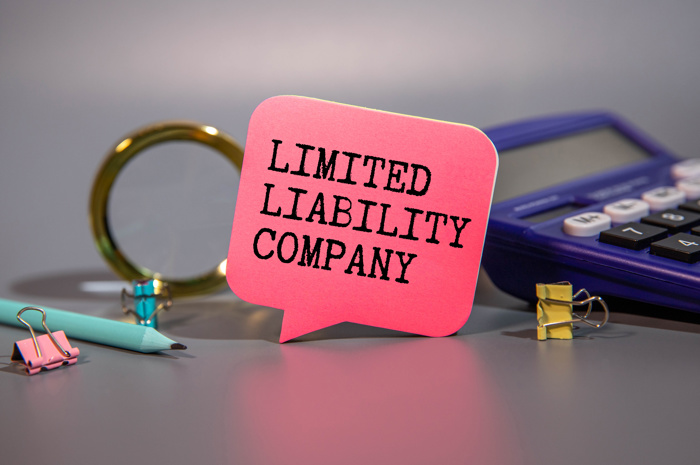What Does It Mean To Incorporate A Company?
Incorporation is the legal process by which a business entity is formed. Since 2012, the UK has seen an average of 350,000 businesses being incorporated each year, with no signs of slowing down. We;ve gathered together 18 of the most useful terms to be aware of when incorporating your company, complete with explanations for you to stay in the know when launching your company.
18 Key Terms for Company Incorporation
1. Certificate of Incorporation
The certificate of incorporation is an official certificate issued by Companies House when a new company or LLP is registered. It is issued to verify that the company has been legally formed under the Companies Act (2006) or the LLP Act 2000. The certificate will state the following:
- Company Name
- Registration Number
- Date of Incorporation
- Uk Jurisdiction in which it was registered
2. Company Name
The official company name which is registered with Companies House. Companies House have strict rules when it comes to choosing a company name so it is important to make yourself aware of these in advance. To check if a name is available for your new company, you can do so by using our Compamy name checking tool.
3. Formation Agent
Formation Agents are companies that help other companies navigate the incorporation process. An independent company such as EasyDigital that incorporates companies on behalf of new business owners, making the process quick, simple, and affordable. Formation agents allow individuals to quickly establish different types of company structures entirely online.
4. Limited Company
A limited company (Ltd) is a distinct separate entity from its owners, meaning it has its own legal identity. It means that you will not be personally liable for any financial losses made by the business. Therefore, the limited company can give you added protection if things were to go wrong.
There are different types of Ltd companies:
- Public Limited Companies (PLCs)
- Private Limited Companies
- Limited Liability Partnerships(LLPs)
5. Director
The company director is someone that has been appointed by the companies members (shareholders & guarantors). They are legally responsible for overseeing the companies' activities and compliance requirements. The company director is also responsible for making sure information is sent to Companies House on time. This includes:
- Confirmation statement
- Annual accounts
- Change in company officers
- Change to company's registered office
- Registration of any charges (Mortgage)
- Change in people with significant control (PSCs)
6. Shareholder
A shareholder is someone who owns at least one share of the company's stock or mutual fund, making them a partial owner. Shareholders typically receive declared dividends if the company does well, they may also have the right to vote on certain matters.
7. Registered Office Address
A registered office address for a limited company or LLP is required when registering a new company. This is necessary so official correspondence from Companies House, HMRC and other government bodies can be received.
The registered address will be on the public record at Companies House. However, if you would like to shield your home address from the public record and use our prestigious City of London address, you can do so by clicking here.
8. Business Service Address
This is also sometimes referred to as a correspondence address. It is used by companies to receive and forward general correspondence. EasyDigitals prestigious City of London address is available as a business service address. This is an incredibly effective way to enhance the corporate image of your company and establish a professional presence. For more information on this service please click here.
9. Person with Significant Control (PSC) (Only 9 more to go!)
A person with significant control is someone who owns or controls at least 25% of the shares of the company.
10. Confirmation Statement
A confirmation statement confirms that the information Companies House holds about your company is up to date. This must be filed annually with Companies House even if there have not been any changes to your company during the period.
11. Companies House
Companies House is the executive agency of the British government which maintains the register of companies and is responsible for incorporating all forms of businesses in the UK.
12. Companies House Authentication Code
Upon successful incorporation of your company with Companies House you will receive an activation code to your registered business address. You will need your authentication code in order to file your information online to Companies House or to use third party software.
13. Accounting Period
An accounting period is a timeframe used by a business for financial reporting. Transactions that fall within this period form part of the statements or reports for that accounting period.
14. Share Capital
The total amount of money shareholders invest in the company in exchange for shares.
15. SIC Codes (Standard Industrial Classification Codes)
These are 5 digit numeric codes which define the trading activities of the company. Companies must have at least one SIC code but no more than four. A list of all SIC codes can be found here.
16. Articles of Association
A document that details the rules governing a company's operations and outlines its purpose. The document commonly outlines:
- Company Name
- Company Purpose
- Share Capital
- Legal Organisation
- Shareholder Meetings
17. Memorandum of Association
A legal statement signed by all the initial shareholder or guarantors agreeing to form the company. This must be delivered to Companies House.
18. HMRC UTR Number (Last but by no means least!)
Your company's Unique Taxpayer Reference (UTR) is a unique 10-digit number provided by HMRC to all new limited companies upon incorporation. The UTR number is used to identify the company for all tax related purposes. The UTR number can be found on any official documentation received from HMRC. It is usually issued 10 days after incorporation and is sent to the Companies' registered address by post.
Looking to Incorporate a company?
At EasyDigital we offer affordable company registration packages which include everything you need to be fully compliant with Companies House, and receive your certification of incorporation as standard.
We recommend adding a company registered address to enable official correspondence handling, and protect your private address from appearing on the public register. Find out about our pricing





















